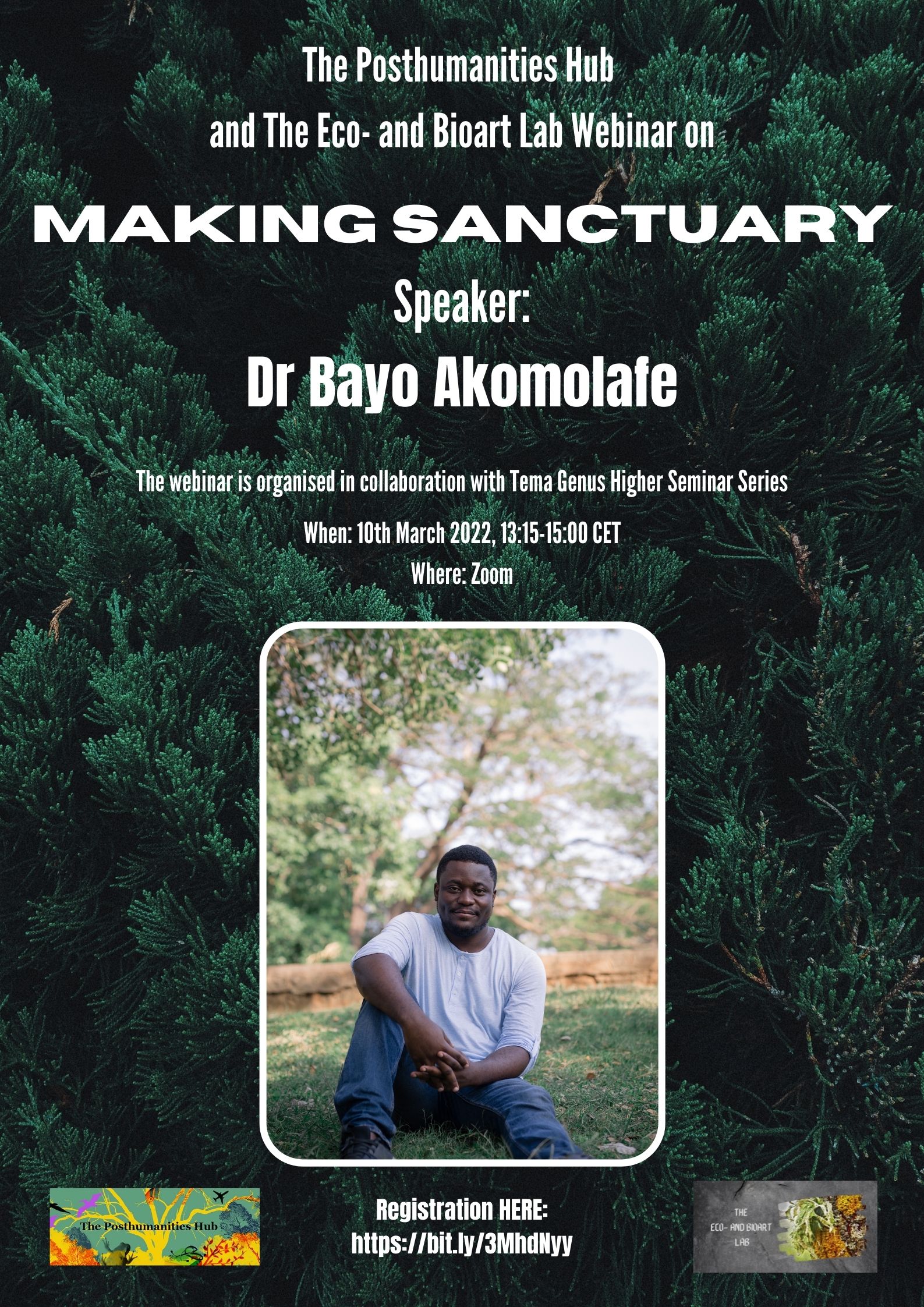-

Ecologies of Death, Ecologies of Mourning: Volume I
International Symposium 23RD MARCH 2023, 13:00 – 18:00 Organised by The Eco- and Bioart Lab, in collaboration with Queer Death Studies Network VENUE: ARBETETS MUSEUM (THE MUSEUM OF […]
-
ANIMA MUNDI – requiem for a vanishing
ANIMA MUNDI is a 4-channel video installation and performance by gustaf broms BENHUSET (The Bone House), Stockholm March 11–27, 2022 12:00–20:00 daily. “Being in a […]
-

PH & EBL Webinar on ‘MAKING SANCTUARY’ with Dr Bayo Akomolafe, 10th March 13:15-15:00 CET
We are pleased to invite you all to the upcoming Posthumanities Hub and The Eco- and Bioart Lab Webinar on “MAKING SANCTUARY” with Dr. Bayo Akomolafe. The event […]